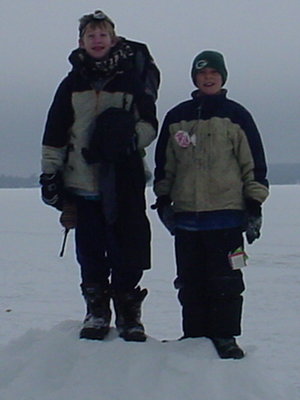Winter Camping


It's that time of year when all good scouts take on the extra challenge of camping in cold weather. Whether 'cold' to you is 30 degrees or -30 degrees, preparing and educating scouts is a big part of a successful outing. Here's a few ways to help remember important information...
WWWW - Wicking, Warmth, Wind, and Water are the Ws of dressing for cold weather camping. When dressing for cold weather, LAYERS are key to warmth and safety. The goal is to stay warm and dry.
A wicking layer against your skin pulls moisture away so it can evaporate and your body stays dry. This layer is polypropylene long underwear.
A warmth layer is a fluffy insulation around your body to keep the heat you generate trapped. This can be wool, down, fleece, or other light, fluffy jacket or vest.
The wicking and warmth layers need protection from wind and water. Wind can blow the trapped warmth away from you, and water can negate the insulation properties of your jacket. So, the outer layer is a waterproof barrier that also stops wind. This can be a raincoat, poncho, snow jacket and pants, or similar.
COLD - Clean, Overheat, Layers, Dry are four words to remember so you don't get cold when winter camping. Clothes that get dirty insulate less which makes you colder, so keep them clean. Overheating causes you to sweat which leads to getting colder, so minimize exertion and activity. Dressing in layers allows you to adjust your insulation as your exertion varies, adding or removing layers as needed or opening and closing zippers to vent heat. Dry clothes insulate, wet clothes don't. Remember COLD so you don't get cold.
Cotton Kills - The thing about cotton clothing is that it absorbs water and stays wet a long time. This is great sometimes, like wetting a cotton bandanna around your neck to cool off in hot weather, but is dangerous in cold weather. Clothing can get wet from rain, stepping in water, melting snow, or sweat from overexertion. Synthetic fabrics tend to absorb less moisture, retain insulation ability, and dry faster than cotton.
UMBLES - Mumbles, Fumbles, Grumbles, and Stumbles.
The signs of hypothermia can be remembered with the UMBLES. A person experiencing hypothermia will have reduced fine motor skills (fumbles), gross motor skills (stumbles), difficulty speaking (mumbles), and changes in mental aptitude (grumbles).
A quick way to check a scout's state is to ask him to make the scout sign and repeat the scout law. Watching how he accomplishes this simple task gives feedback in the four areas.
See more cold weather camping tips
Posted: 12:01 11-22-2016 1313
Comment or Question about this page:
Scouting 2025 - Ask a Question - Add Content
Just for Fun: Socializing merit badge




This site is not officially associated with Scouting America
Find more Scouting Resources at www.BoyScoutTrail.com



Follow Me, Scouts
Recent Comments